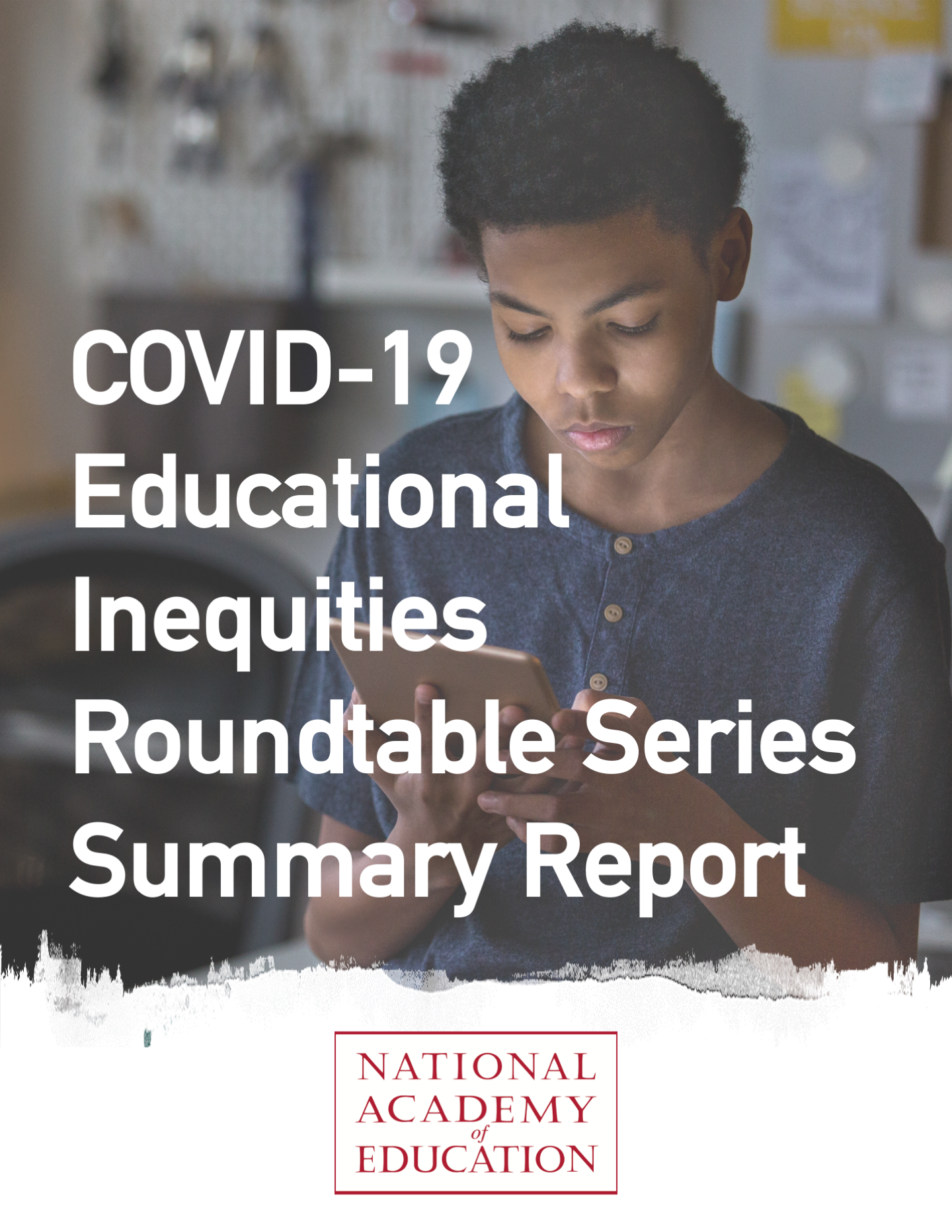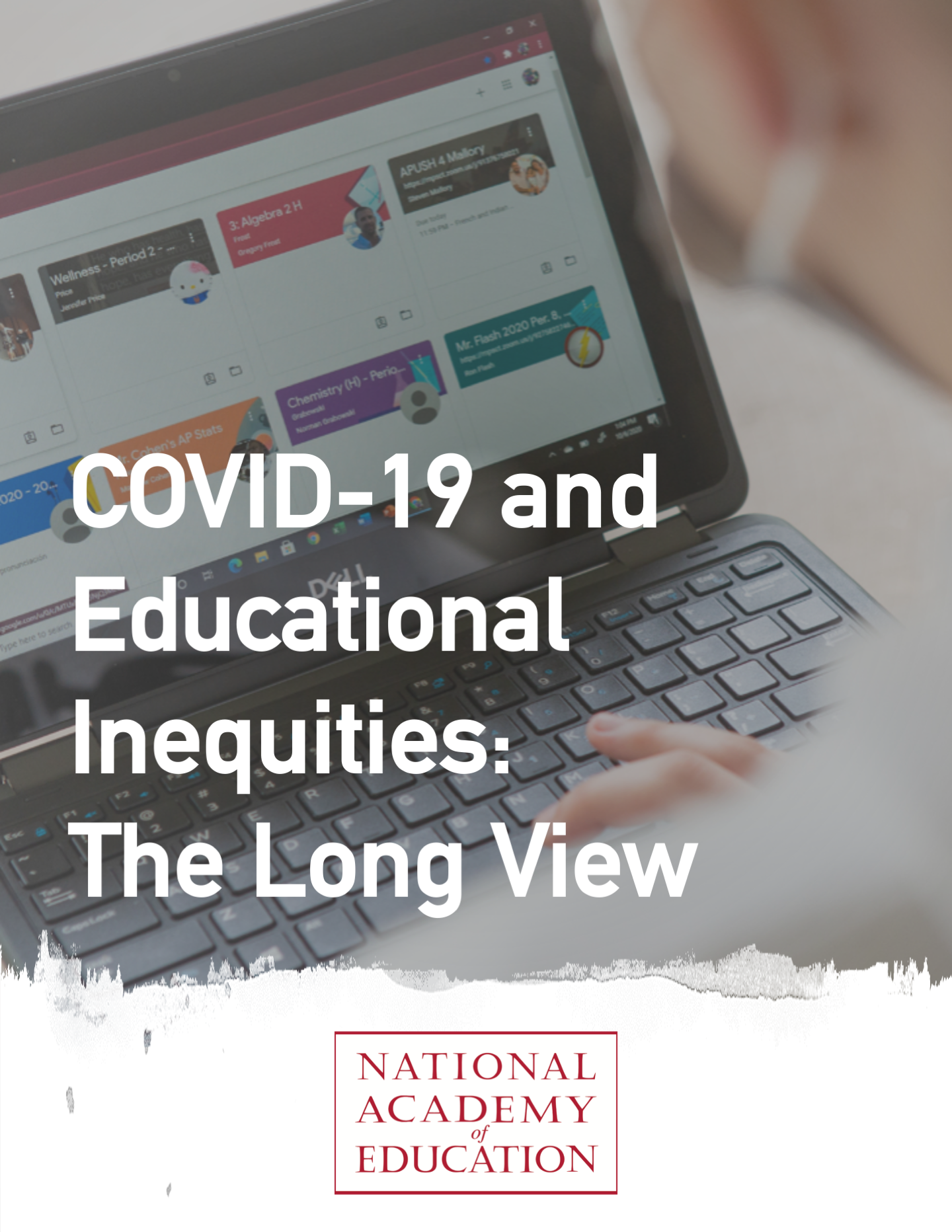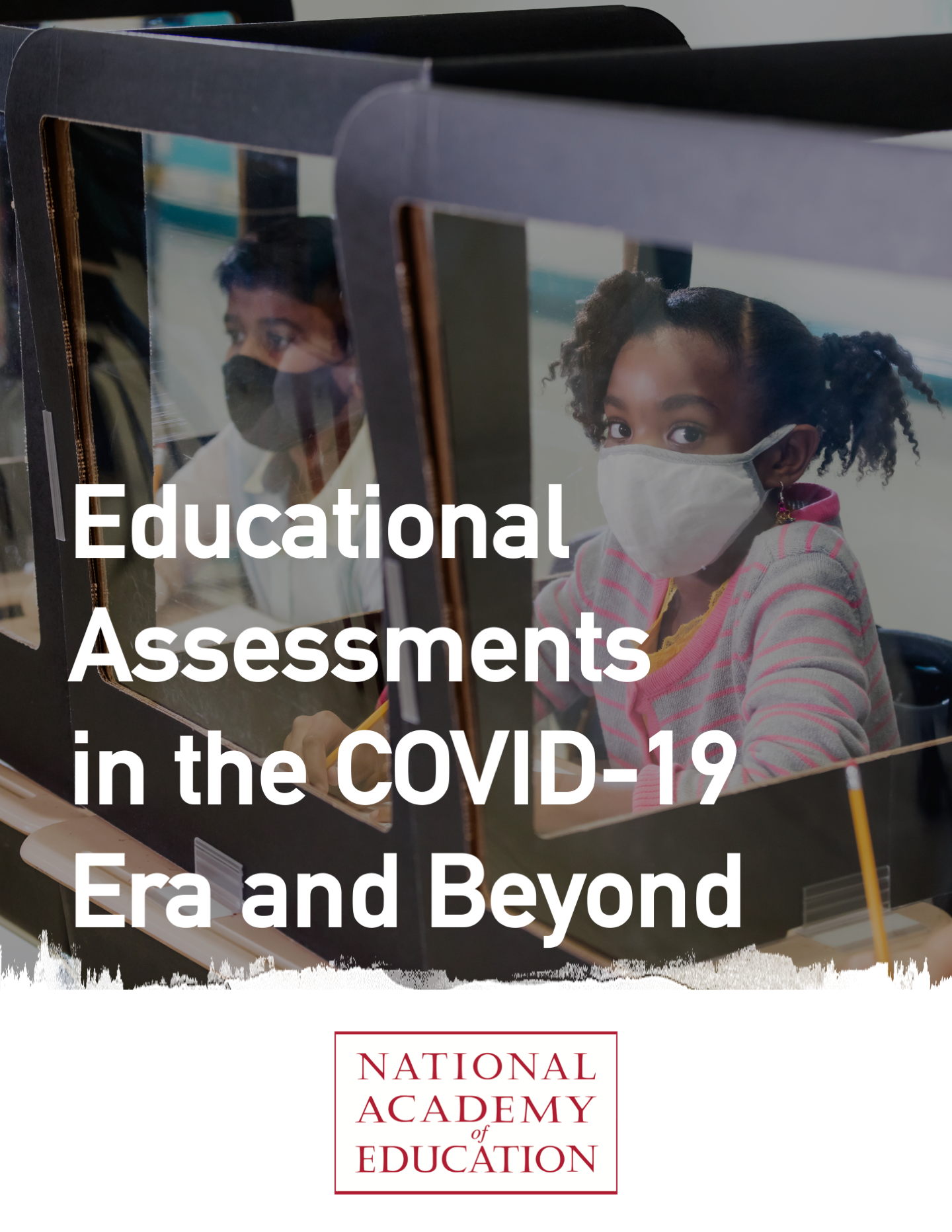COVID-19 and Educational Inequities
In the midst of the devastating COVID-19 pandemic, the goal of this National Academy of Education (NAEd) project is to bring together scholars, policy leaders, and educators to address the fundamental educational challenge of our time — how do we address educational inequities in the face of the COVID-19 emergency, a challenge made even more urgent given the convergence of the pandemic with a national reckoning over racial injustice, climate change, and a significant economic recession.
Since July 2020, the NAEd has been convening scholars, policy leaders, and educators in roundtables and public forums to discuss a series of challenges surrounding COVID-19 and educational inequities. These topics include (1) challenges to academic learning (specifically in reading and mathematics) and social-emotional development, (2) “best bets” to advance the possibility for improved learning as the crisis continues and to imagine a structural reset of American education beyond the crisis, and (3) uses (as well as potential misuses) of educational assessments during the pandemic as well as considerations for improved assessment procedures beyond the pandemic. These discussions culminated in three summary reports addressing academic and social-emotional learning, best hopes for a reset in American education, and educational assessments in the COVID-19 era and beyond, as well as recorded public forums and resource links (see below).
NAEd Forums on COVID-19 and Inequities in Education
STEERING COMMITTEE MEMBERS
- Michael J. Feuer (Chair), The George Washington University
- Hyman Bass, University of Michigan
- Dorothy Espelage, The University of North Carolina at Chapel Hill
- Gloria Ladson-Billings, University of Wisconsin-Madison
- Susanna Loeb, Brown University
- Annemarie Sullivan Palincsar, University of Michigan
- William F. Tate IV, University of South Carolina
- Frank Worrell, University of California, Berkeley
- Stanton Wortham, Boston College



